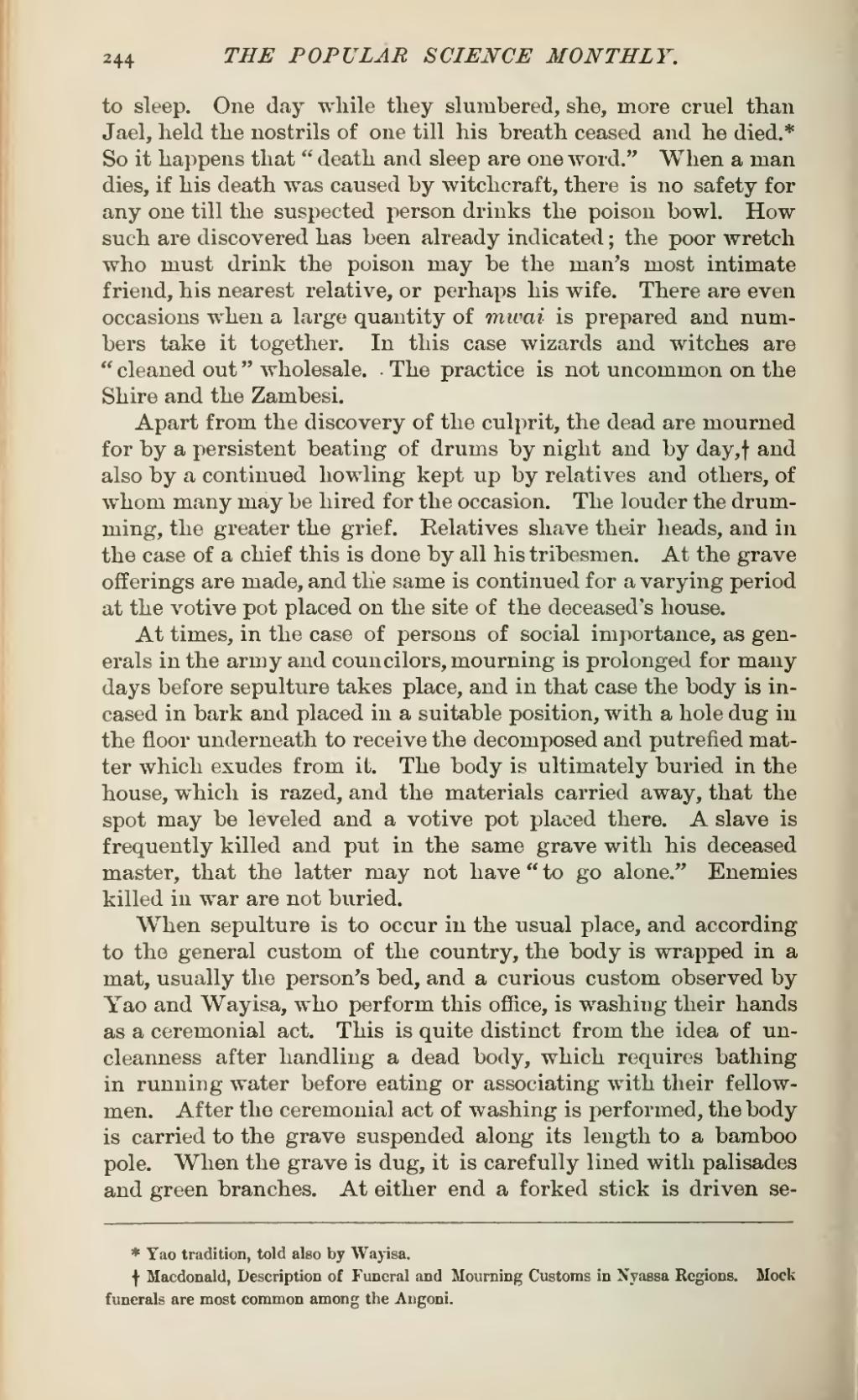to sleep. One day while they slumbered, she, more cruel than Jael, held the nostrils of one till his breath ceased and he died.[1] So it happens that "death and sleep are one word." When a man dies, if his death was caused by witchcraft, there is no safety for any one till the suspected person drinks the poison bowl. How such are discovered has been already indicated; the poor wretch who must drink the poison may be the man's most intimate friend, his nearest relative, or perhaps his wife. There are even occasions when a large quantity of mvai is prepared and numbers take it together. In this case wizards and witches are "cleaned out" wholesale. The practice is not uncommon on the Shire and the Zambesi.
Apart from the discovery of the culprit, the dead are mourned for by a persistent beating of drums by night and by day,[2] and also by a continued howling kept up by relatives and others, of whom many may be hired for the occasion. The louder the drumming, the greater the grief. Relatives shave their heads, and in the case of a chief this is done by all his tribesmen. At the grave offerings are made, and the same is continued for a varying period at the votive pot placed on the site of the deceased's house.
At times, in the case of persons of social importance, as generals in the army and councilors, mourning is prolonged for many days before sepulture takes place, and in that case the body is incased in bark and placed in a suitable position, with a hole dug in the floor underneath to receive the decomposed and putrefied matter which exudes from it. The body is ultimately buried in the house, which is razed, and the materials carried away, that the spot may be leveled and a votive pot placed there. A slave is frequently killed and put in the same grave with his deceased master, that the latter may not have "to go alone." Enemies killed in war are not buried.
When sepulture is to occur in the usual place, and according to the general custom of the country, the body is wrapped in a mat, usually the person's bed, and a curious custom observed by Yao and Wayisa, who perform this office, is washing their hands as a ceremonial act. This is quite distinct from the idea of uncleanness after handling a dead body, which requires bathing in running water before eating or associating with their fellowmen. After the ceremonial act of washing is performed, the body is carried to the grave suspended along its length to a bamboo pole. When the grave is dug, it is carefully lined with palisades and green branches. At either end a forked stick is driven se-

